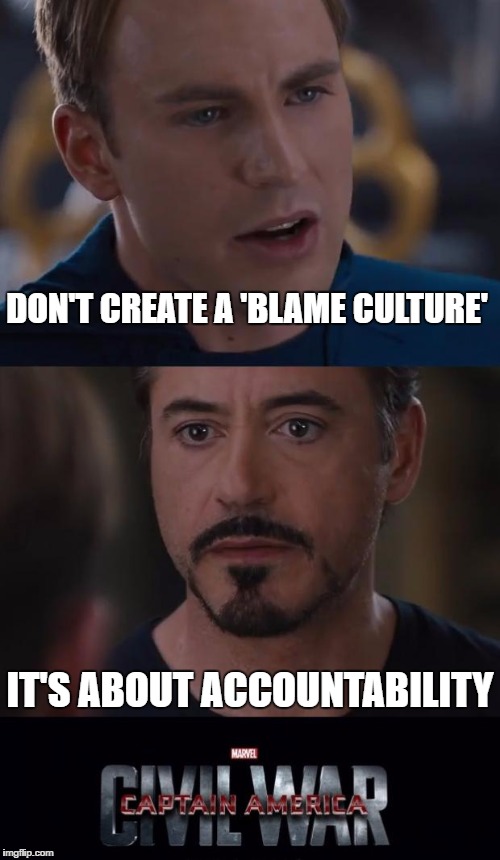On Apr 4, Health Minister Gan Kim Yong said in Parliament that naming the people involved in the Hepatitis C outbreak at Singapore General Hospital (SGH) and detailing the penalties given out will not help patients in the long run.
His remarks were in response to a parliamentary question from Non-Constituency Member of Parliament (NCMP) Leon Perera, who asked for the names of the those responsible and the actions taken against them.
Minister Gan said naming the individuals will create a "blame culture" that will not help patients over time.
The debate continues online
Perera later posted a status to his Facebook page, saying that asking for the identity of those involved and the penalties given was "not about the allocation of blame but ensuring a culture of public accountability and bolstering public confidence in Singapore’s healthcare system."
He said that "if the public does not know what actions (or inaction) met with what warning or penalty, how do these penalties act as a deterrent to others?"
He added that by not revealing names, other senior staff and doctors at MOH and SGH will have to bear public suspicion of being involved in the outbreak — this point was earlier brought up by ST's Salma Khalik in a hard-hitting commentary calling for MOH to name those involved in the incident.
Here's Perera's full post:
Today, right after the Minister for Health answered the two questions filed on the Hepatitis C cluster at SGH,...Posted by Leon Perera on Monday, 4 April 2016
People's Action Party (PAP) Member of Parliament and oncology doctor Tan Wu Meng also shared a Facebook note on this issue. He recounted how a nurse had admitted a mistake to him, and because she did, the processes that led to the mistake could be fine-tuned.
Tan said such incidents "usually come to light only because healthcare workers volunteer to come forward and highlight the error".
He then put this question forward — if a name-and-shame culture was instead in place, would people volunteer to highlight errors, and would processes be fine-tuned if workers were afraid to highlight errors?
Here's his full note:
Helping our healthcare workers to care for patients: should we name, shame and blame?
Some years ago, one of the junior healthcare workers on my team came to me for advice. Sara* was deeply distressed, and very worried.
There had been a medication error. Sara had given my patient an intravenous injection with a bag of medication which had been prepared and labelled for another patient. But by sheer chance it happened that the drug was the same, and the dose delivered was the same.
From the point of view of my patient, he had apparently received the correct drug, correct dose, at the correct time – but what happened was clearly not correct.
So it was still a serious error, even if my patient had not been harmed. This is what is called a near-miss. What if the mix-up had led to a wrong drug which the patient was allergic to, or a wrong dose that caused a toxic overdose?
Near-misses are important, because the next time a similar error occurs, a patient could be seriously harmed.
Yet near-misses usually come to light only because healthcare workers volunteer to come forward and highlight the error. This helps other workers learn. It also helps the institution learn about potential weaknesses in processes, and how to improve the system.
***
As soon as we could, I sat down with my patient and his family, and was open with them about the near-miss. On behalf of the team, I apologised that the near-miss had occurred, and reassured the patient that the institution would look into how the error happened, and how to prevent similar errors in future.
A committee for Root Cause Analysis (RCA) was convened, chaired by an independent senior doctor from a different department. The RCA committee analysed the incident from many angles, including the design of the working environment as well as the processes. In hindsight, there were some design factors which made an error more likely.
Even though the frontline error was Sara's and she had accepted full responsibility and the ensuing disciplinary process, improvements in the system would help Sara and other workers in her position avoid making similar errors in future.
***
But what if, instead of a Learning Culture, the institution had a name-and-shame blame culture?
Would Sara have been as willing to come forward about the near-miss, if she was afraid of being named and shamed publicly? Had Sara kept quiet, nobody would have known about the weakness in the system -- until the same error occurred with another healthcare worker and another patient, with far more serious consequences.
Would the department and institution have been able to learn from this near-miss, if workers were afraid to highlight errors, out of fear that they or colleagues would be named and shamed publicly?
In a world with online hate websites, what would it have done to Sara's family (who had no involvement in the patient’s care), if Sara had been named and shamed publicly?
When there are shortcomings in processes and policy, sometimes it is the frontline and junior staff member who commits the error, because they have been put at higher risk of making a mistake. What would happen to our frontline rank-and-file workers, in an institution with a name-and-shame policy?
Above all, would a policy of public naming-and-shaming help improve patient care and patient safety? Or would it put future patients at even more risk?
The choice of culture for an institution has deep implications. Name-and-shame, or Learn-and-improve. May we always choose wisely.
05 Apr 2016
NB: Yesterday in Parliament, I raised my hand to indicate a follow-up question request, after the Minister for Health answered the questions filed on the SGH Hepatitis C outbreak. Unfortunately the allocated timing for Question Time ended, and there wasn’t the opportunity to ask my Supplementary Questions. But this article may hopefully convey some of the deep questions that many of us grapple with and think about, as we try to help healthcare workers do their jobs better, so as to provide better, safer care for patients.
[*Names have been changed, and some details withheld, to maintain patient confidentiality.]
Which argument do you prefer?

If you like what you read, follow us on Facebook and Twitter to get the latest updates.
If you like what you read, follow us on Facebook, Instagram, Twitter and Telegram to get the latest updates.
